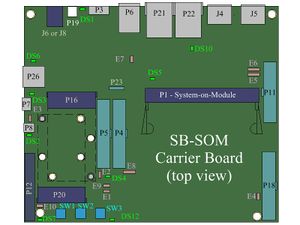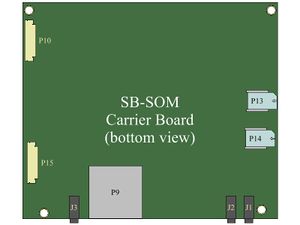SB-SOM: HOWTO: USB Console
Setting up your host PC
- Connect a micro-USB cable (included with the evaluation kit) between the SBC connector P7 to a free USB port on your host PC.
- Make sure the CP2104 driver is available with your operating system, otherwise install CP2104 driver onto the host PC from here: https://www.silabs.com/products/mcu/Pages/USBtoUARTBridgeVCPDrivers.aspx
- Identify the host PC interface and port you will be using for communication with the SBC:
- For Linux hosts, the serial port in most cases would be called like one of the following (where n is a positive integer): /dev/ttyUSB0, /dev/ttyUSB1 ... /dev/ttyUSBn
- For Windows Hosts, the serial port in most cases would be called like one of the following (where n is a positive integer): COM1, COM2 ... COMn
- Start a terminal emulation program (such as HyperTerminal on Windows or minicom on Linux).
- Within the terminal emulation program, in the serial port configuration section select the port identified in previous step and set the following serial port parameters:
Baud Rate Data Bits Stop Bits Parity Flow Control 115200 8 1 none none
More Details: connector P7.
Setting up the Compulab Board
- Make sure jumper E3 is not populated.
- Start the system by enabling power through the main DC power connector.
- Make sure DS3 LED is ON while DS2 LED is OFF.
- Console messages should appear on your host PC through the terminal emulation program.
More Details: main DC power connector.

